4.8 Average on Google


Workers’ Compensation Attorneys in South Carolina
Key Takeaways:
Key Takeaways:
- Common workplace injuries that can qualify for workers’ comp in South Carolina are, falls, motor vehicle accidents, amputations, broken bones and hearing loss
- Workers’ comp benefits often cover medical expenses and care needs from your job injury, plus partial wage compensation.
- If you can’t file for workers’ compensation, you may be able to file a personal injury lawsuit.
- Insurance companies are always looking for reasons to deny or cancel these benefits. When that happens, you may benefit from a workers’ compensation lawyer’s guidance.
- Normally all employees in South Carolina have workers’ compensation coverage, with only a few exceptions
If you’ve been injured on the job, let us Fight to Win. We’ll simplify the process, eliminate the frustrations, and fight for fair compensation for any work-related injury. Call 888-HAWKLAW or talk to us using our live chat. We’re here to help.
Who Qualifies For Workers’ Compensation In South Carolina?
- While most South Carolina workers are covered by workman’s comp insurance, you may have to get your compensation through other methods if your employer doesn’t provide this coverage. Almost all employees in South Carolina should have workers’ compensation coverage, with only a few exceptions, such as: Employees working for companies with four or less employees
- Certain agricultural employees excepted from Farm Labor Laws
- Railroad employees exempt from Federal Employers Liability Act (FELA)
- Employees of companies with annual payrolls less than $3,000
South Carolina workers’ compensation coverage is an important form of insurance that’s in place to protect you from all workplace injuries and illnesses regardless of the cause. That means that you should be covered whether you fall on your way to the bathroom, get into an accident to meet a client, develop a repetitive motion injury, have an accident working with heavy machinery, or suffer any other work-related injury or impairment. Sadly, many people who apply for South Carolina workers’ compensation find their claims unfairly denied. There are many reasons why this happens, but it’s not the end of the world when it does. The workers’ comp law firm of HawkLaw, P.A., can fight for your rights and fight to secure you the workers’ compensation benefits you deserve.
-
$3,000,000*SettlementTrucking Accident
-
$1,005,000*SettlementCar Accident
-
$575,000*SettlementPersonal Injury
The Workers’ Comp Claim Process in South Carolina
Once you’ve suffered an on-the-job injury in South Carolina, what can you do about it? Fortunately, the workers’ comp process in SC is meant to be simple, so you don’t have to worry about your claim. Instead, you can focus on your recovery.
First, you’ll file your claim with your employer within ninety days of your accident. From there, your employer will have ten days to notify their insurer. Once the insurer has the report, they’ll begin investigating. They’ll review your claim, find evidence that your accident happened at work, and calculate how much your claim is worth.
Once this investigation is done, you’ll receive either an approval letter or a denial letter. If you receive the former, you’re ready to start receiving your benefits. If you received a denial letter, don’t panic. These letters usually come with an explanation for your denial, which gives you the information you need to fight back.
What’s Included in My Workers’ Comp Benefits?
South Carolina workers’ compensation insurance offers a wide range of benefits for work-related injuries. Benefits cover medical expenses and care needs from your job injury, plus partial wage compensation based on your average weekly wage. You don’t even need to be full-time to collect benefits. Injured employees may be entitled:
Medical Care
- Doctor’s visit expenses
- Hospital treatment expenses
- Compensation for lost work time
- Disability benefits*
- All other medical bills related to injury, disfigurement, or impairment
Partial Disability
- Salary for light work duties while slightly injured
- Benefits are two-thirds of the difference between the current average weekly wage on restricted duties and the average weekly wage prior to injury
Example:
- $1,000 weekly prior to injury
- $500 weekly on restrictions
- $333.33 in temporary partial disability benefits
Total Disability
- Unable to return to work
- Eligible to receive two-thirds of average weekly wage prior to injury
- Payments are eligible for up to 500 weeks, in most cases
- Paralysis or brain damage may pay out lifetime benefits
Death Benefits
- A family member of a deceased employee may be entitled to death benefits
- Reimbursement for burial expenses
- Two-thirds of deceased loved one’s weekly salary up to 500 weeks
Workers’ Comp Doesn’t Cover Every Accident
SC workers’ compensation does not cover some accidents. If your accident was not in the expected performance of your work duties, you might not be approved. If, for example, you have a car accident on your way to meet a client during your workday as part of your duties, your workplace injuries may be covered. On the other hand, if you have a car accident on your way to work or after work, you may not be covered.
If your workplace accident comes from a slip and fall on your way to the bathroom, the injuries you suffer count as workplace injuries. If you develop carpal tunnel from years of repetitive motion, this counts as well. On the other hand, if you get hurt during horseplay with another employee, workers’ compensation insurance may not approve you.
If you feel that your South Carolina personal injury is the result of a legitimate workplace accident, but your claim has still been refused, a workman’s comp attorney can be essential to your fight. The HawkLaw law firm fights to win! Call us now so we can fight for you!
Hurt At Work In South Carolina?
HawkLaw’s team of work accident lawyers work hard to help you get back on your feet.
When you’re injured at work, it’s tough to get back on your feet. You’re in pain, you’re unable to work, and the bills are piling up. This can leave you feeling overwhelmed and at a loss for how to put your life back together.
But you don’t have to suffer without the compensation you need. You should be eligible to receive workers’ compensation benefits for your accident. Our attorneys will fight for your workers’ comp benefits and work hard to make sure you get every cent you’re owed.

Work Injury vs Workers’ Compensation
Often, when you’re injured at work, you’ll file a workers’ comp claim. These claims should be covered by your employer, but sometimes, your employer or their insurance provider may try to deny your claim.
However, a workers’ comp claim isn’t your only option. If you can’t file for workers’ compensation, you may be able to file a personal injury lawsuit. A personal work injury claim covers injuries that were caused as a result of someone’s carelessness or negligence that directly impacted your health and safety.
Common Types of On-the-Job Injuries
After your on-the-job accident, there’s a chance that you might be suffering from a severe injury. Unfortunately, these injuries can cause lifelong impairments and require years of treatment. As such, you don’t need to wait to file. You’ll need your South Carolina workers’ comp as soon as possible. Without it, it can be difficult or impossible to recover.
Keep the injuries you’ve suffered in mind while filing your claim. Your damages are likely severe, and knowing what injuries you’ve suffered and what treatment you need will make a difference.
When you’re injured at work, the severity can range widely. A work accident could cause any of the following injuries:
- Injuries from falling from a height, like broken bones
- Amputations from machinery accidents
- Injuries from motor vehicle accidents, like traumatic brain injuries and other head trauma
- Hearing loss
- Muscle strains
Common Injuries That Can Result In Workers’ Compensation
Repetitive motion injuries
Repetitive motion injuries are gradual in onset and caused by the cumulative effects of repetitive traumatic events. There’s a section of the South Carolina Code of Laws that classifies repetitive motion injuries and the claims that can be made for rightful compensation.
Slip-and-Fall Injuries
Slip-and-fall injuries are among the most common onsite personal injuries in a workplace. Employer or co-worker negligence often contributes to the slip-and-fall incident, creating a chain of evidence that helps you press your rightful claim for compensation.
Back Injuries
Injuries to the upper or lower back are typical results of work injury incidents. You may also suffer serious spinal cord damage that limits your mobility for the rest of your life, which increases your options to press a claim.
Broken Bones
Not surprisingly, on-the-job work injuries typically result in broken bones that require weeks or months to properly heal. You can seek compensation for these injuries as well as the lost wages over the amount of time it takes to heal from the fractures.

Why Choose HawkLaw’s Workers Compensation Lawyers in South Carolina
Most of us spend more of our lives at our jobs than anywhere else. We need safe and secure working environments so we can perform our jobs as exceptionally as possible. When an employer is responsible for unsafe working conditions that cause an accident, that employer must be held accountable. That’s where South Carolina workers’ compensation lawyers come into the picture.
Workers’ compensation benefits are supposed to be in place for that reason: to be sure that injured workers get covered for workplace injuries regardless of why the job injury may have happened. Unfortunately, the insurance company is always looking for reasons to deny or cancel these benefits.
When that happens, you need a law firm in your corner with workers’ compensation attorneys who have the experience to fight for your right to benefits. You need a workers’ comp lawyer who cares about you and devotes themselves to fighting every step of the way to help you get your life back together.
That’s our philosophy at HawkLaw law firm, and that’s the personable approach you receive from our dedicated South Carolina workers’ compensation lawyers serving Columbia, Myrtle Beach, Lexington, North Charleston, and other nearby regions. We’ll work hard to get you the fair and just compensation that you deserve.
HawkLaw fights to win! As a digital-first law firm, you can get your case initiated immediately so we can start fighting for you. Call 888.HAWK.LAW today, fill out our contact form, or use our live chat for a free consultation*, and we’ll get to work right away. We have years of experience working within workers’ compensation laws to offer the legal advice you need and to fight to get workers’ comp claims approved. Call us now so we can fight for you!
Frequently Asked Questions
Visit Our Office
Greenville, SC 29615
John Hawkins is the Founder and CEO of HawkLaw He has been licensed to practice law in South Carolina since his graduation with honors in 1994 from the University of South Carolina School of Law, where he was on the Law Review and Order of Wig and Robe.
"*" indicates required fields

